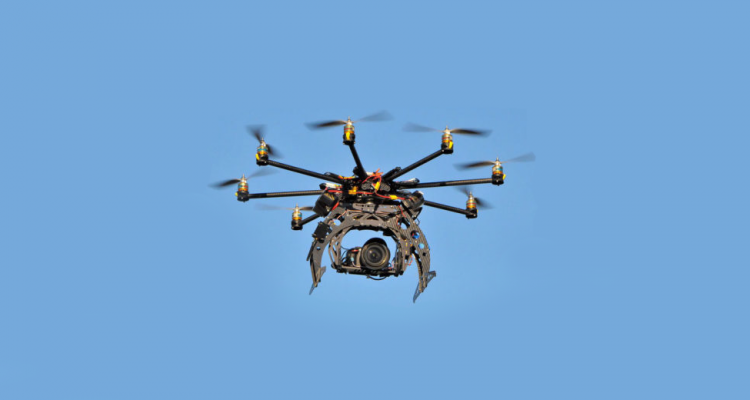You are viewing our site as a Broker, Switch Your View:
Agent | Broker Reset Filters to Default Back to ListThe Future of Drones in Real Estate
July 14 2014
 When one hears the word drone, most often the brain conjures up an image of a gigantic unmanned military plane. Recently, however, Amazon unveiled their plan to use drones as unmanned delivery machines, built to deliver packages directly to your front door. In addition to Amazon, what implications might drones have, specifically for the real estate industry?
When one hears the word drone, most often the brain conjures up an image of a gigantic unmanned military plane. Recently, however, Amazon unveiled their plan to use drones as unmanned delivery machines, built to deliver packages directly to your front door. In addition to Amazon, what implications might drones have, specifically for the real estate industry?
The rise of commercialized drones has been interesting, to say the least. With the unprecedented availability of remote control flying technology, ranging from low-cost remote control helicopters to high-end octocopters, people are finding new implementations for drones every day. Right now, the largest market for them is hobbyists who fly drones for entertainment. However, drones have recently started to make the transition into new areas such as filming action sports like snowboarding and motorcross, delivering beverages to affluent people in pools, and of course, taking aerial selfies!
But there are even more effective uses for these unmanned flying vehicles. Once reserved for luxury-home listings, aerial photos and videos are popping up in listings for moderately priced homes, thanks to the use of increasingly affordable drones. These drones provide an opportunity for brokers and agents to take breathtaking photos that they couldn't have taken previously. Not only is it a much cheaper alternative to renting a plane and a photographer, it allows for closer and crisper shots. While NAR recommends that REALTORS® avoid using drones until the FAA issues rules on commercial drone use next year, as directed by Congress, some practitioners are taking their chances.
Brandon Doyle, a sales associate with Edina Realty in Maple Grove, Minn., has experimented with DJI's F550 drone since October 2012. He states that drones will be particularly helpful for showing off high-acreage property. "It's very difficult to show what 40 acres looks like in a photo, but with a drone, you can get a feel for the topography and where the boundaries are on a property."
The FAA is slated to issue rules on the commercial use of drones in 2015. To that end, the agency has authorized tests around the country to help it determine what restrictions are needed to ensure safe operation and to protect national security as well as people's privacy. In the meantime, NAR says members should not use drones for real estate marketing purposes nor hire companies that do so.
According to Les Dorr, a spokesman for the FAA, "Typically, if we learn of what appears to be an unauthorized commercial operation, our main goal is to get them to stop. We may give them a warning call, a warning letter or even a cease-and-desist order. So far we have proposed civil penalties against only two people."
The potential for drones in real estate goes beyond external images, however. Other businesses are starting to expand on the action by taking both interior and exterior shots of a home, designing interactive floor plans, and building specialized websites to display it.
While the commercial implications of drones in real estate are clear, the green light is not. The task for real estate companies is to educate themselves more about this emerging technology, so that when the green light is clear, those who want to utilize this new technology will be ready to fly (pun intended) ahead of the competition effectively, safely, and within the guidelines of the FAA.
Still don't believe drones are the wave of the future? Check out this incredible TED Talk about athletic quadrocopters:









